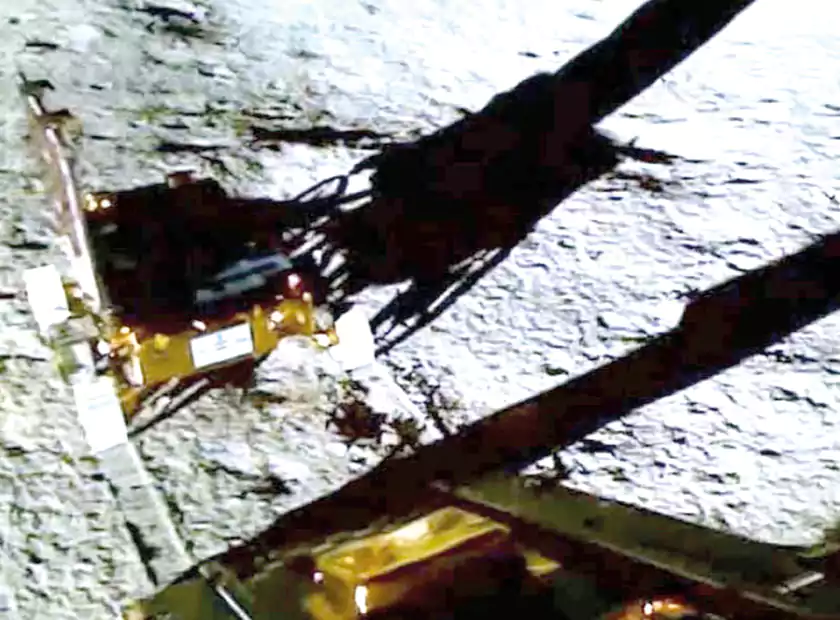India’s space agency said that it has been unable to receive signals from its lunar lander and rover after attempts to wake them up following the end of a two-week lunar night.
“Efforts have been made to establish communication with the Vikram lander and Pragyan rover to ascertain their wake-up condition,” the India Space Research Organization said Friday on X.
The lander and rover were put into sleep mode due to a two-week lunar night. ISRO said efforts to establish contact will continue.
India last month made history after its moon mission accomplished a soft landing at the lunar south pole, becoming the first country to do so.
The Pragyan rover deployed after the landing and began to explore the landing site, sending images to Earth. The agency said it “completed its assignments,” while the Vikram lander “exceeded its mission objectives.”
On Sept. 4, the space agency had Vikram “will fall asleep next to Pragyan once the solar power is depleted and the battery is drained. Hoping for their awakening, around September 22, 2023.”
Science and Technology Minister Jitendra Singh said on Friday night that the teams of the space agency were making their best efforts to establish contact with the Vikram and Pragyan “to ascertain their wake-up condition after the sunrise on the Moon.”
He said the lack of signal reception could be due to a “prolonged spell of cold weather conditions up to minus 150C (minus 238F)” during the lunar night.
“However, efforts to establish contact shall continue,” he said.—Anadolu Agency









